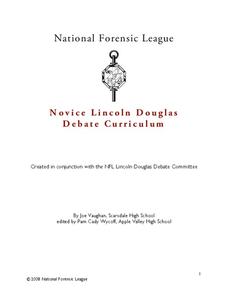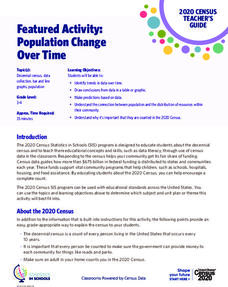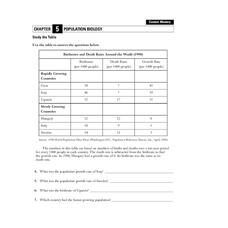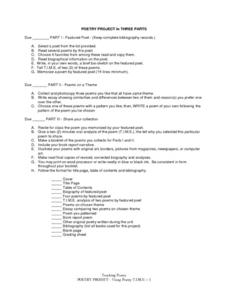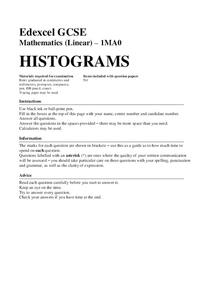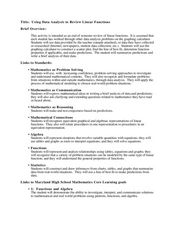Reed Novel Studies
A Series of Unfortunate Events - The Bad Beginning: Novel Study
Scholars read about the unlucky events that continue to fall on the children in A Series of Unfortunate Events - The Bad Beginning by Lemony Snicket. A set of worksheet activities include completing sentences with vocabulary words,...
Reed Novel Studies
The True Blue Scouts of Sugar Man Swamp: Novel Study
Wild feral hogs and an alligator wrestler are just two interesting aspects of Kathi Appelt's novel The True Blue Scouts of Sugar Man Swamp. Using the novel study, scholars search the text for examples of the eight parts of speech....
Joel Michel Studies
The Swiss Family Robinson: Novel Study
What items would most people want to have with them if they were stranded on a desert island? Using the novel study for The Swiss Family Robinson, scholars attempt to answer the question from their own perspectives. They also explore...
Reed Novel Studies
The Wind In The Willows: Novel Study
True friends stick together. In the case of The Wind In The Willows, the friends just happen to be a toad, mole, rat, and badger who team up to beat the weasels. The resource covers the first chapter of their raucous adventures. Scholars...
Incentive Publications
Building Proofreading Skills
Designed to build proofreading skills in spelling, capitalization, punctuation, and language usage, as well as proofreading for clarity, transition, and order, this workbook is packed with activities for all kinds of writing.
New Hampshire Bureau of Adult Education
Dystopian Literature: from Fiction to Fact
Imagine an entire course devoted to dystopian literature. If that concept appeals to you, check out this course that uses 1984 as the anchor text and includes classic short stories as well.
Kids Voting USA
Kids Voting USA: K-2 Classroom Activities
Address both social studies and critical reading skills with a resource dedicated to the voting process, the American democracy, and the ability to evaluate information in order to develop a stance on an issue. Each themed activity set...
Curated OER
Novice Lincoln Douglas Debate Curriculum
How do you affirm and negate a statement of value? What is refutation? Interested in debate? Introduce your class to the format of the Lincoln Douglas debate with 14 lessons, designed to be used in order, so that debaters learn the logic...
Mathed Up!
Algebra: Indices
Indices and exponents mean the same. Pupils review exponential notation by watching the review video for the General Certificate of Secondary Education math assessment refresher. Scholars then use the activity to show what they know...
Water
Global Water Supply High School Curriculum
Some areas of the world take water for granted while others are in crisis. So what to do? Learners consider the water crisis situation in several countries. They compare and contrast each location and the causes and effects of the water...
US Department of Commerce
Featured Activity: Population Change Over Time
Keep track of a state's population. After a brief discussion on how population data is used for funding, individuals look at population changes over time. Pupils find the population of two states using three different censuses. They then...
Curated OER
Population Biology
In this population instructional activity, students will use a table with information about the birth rates and death rates from different countries around the world to complete 4 short answer questions.
Curated OER
Using Vegetation, Precipitation, and Surface Temperature to Study Climate Zones
Middle schoolers begin their examination of the climate zones found around the world. Using a software program, they identify the relationship between the vegetation, climate and temperatures of the different zones. They also plot...
Teaching English
Poetry Project in Three Parts
It’s poetry T.I.M.E! Individuals use the T.I.M.E. format (T = Title, thought, and theme; I = Imagery and figurative language; M = music and sound; E = emotion) to study a poet, collect poems that have a similar theme, and create a...
Mathed Up!
Histograms
Class members explore how to read and use histograms by watching a video on creating and analyzing histograms. To finish, the class works on a set of questions that tests these skills.
Curated OER
Stoichiometry
Balancing equations is a foundational skill for starting chemists. There are a few slides in this PowerPoint with colorful diagrams that help to explain how. Unfortunately, the presentation begins with an unrelated table of contents and...
Curated OER
Rate of Coral Growth
Using a table of information provided, middle school marine biologists chart data on a graph to determine the impact of water depth on coral growth in Australia's Great Barrier Reef. Then they answer questions that connect the data to...
Curated OER
The Periodic Table
Eleventh graders examine the history and development of the periodic table and properties of elements. They complete worksheets, take notes during a teacher-led discussion, and produce their own periodic table.
Curated OER
Using Data Analysis to Review Linear Functions
Using either data provided or data that has been collected, young mathematicians graph linear functions to best fit their scatterplot. They also analyze their data and make predicitons based on the data. This lesson is intended as a...
Chemical Education Foundation
Teacher's Guide to Science Projects
Do you find the idea of having a science fair with all of your students intimidating? Use a guide that provides everything you need to know to make project-based learning manageable. The resource includes options for four different types...
North Carolina State University
Exploring Genetics Across the Middle School Science and Math Curricula
Where is a geneticist's favorite place to swim? A gene pool. Young geneticists complete hands-on activities, experiments, and real-world problem solving throughout the unit. With extra focus on dominant and recessive genes, Punnett...
Core Knowledge Foundation
Unit 6: American Revolution
The American Revolution is the theme of a five-week unit that focuses on reading, grammar, morphology, and writing. Scholars read and respond to texts, practice spelling and word work, and write paragraphs. Assessments gauge comprehension.
PHET
Planet Designer: Martian Makeover
Mars used to have liquid water, can you make it come back? Use the lesson and simulation to understand why Mars lost its magnetic field, why atmosphere is important, and what gravity has to do with it. This is the third lesson in a...
Curated OER
Globalization Comes to the Table
Students, in groups, research the issues surrounding one of several controversies involving food and globalization. Then they debate their position and show a PowerPoint presentation at a mock summit meeting.






